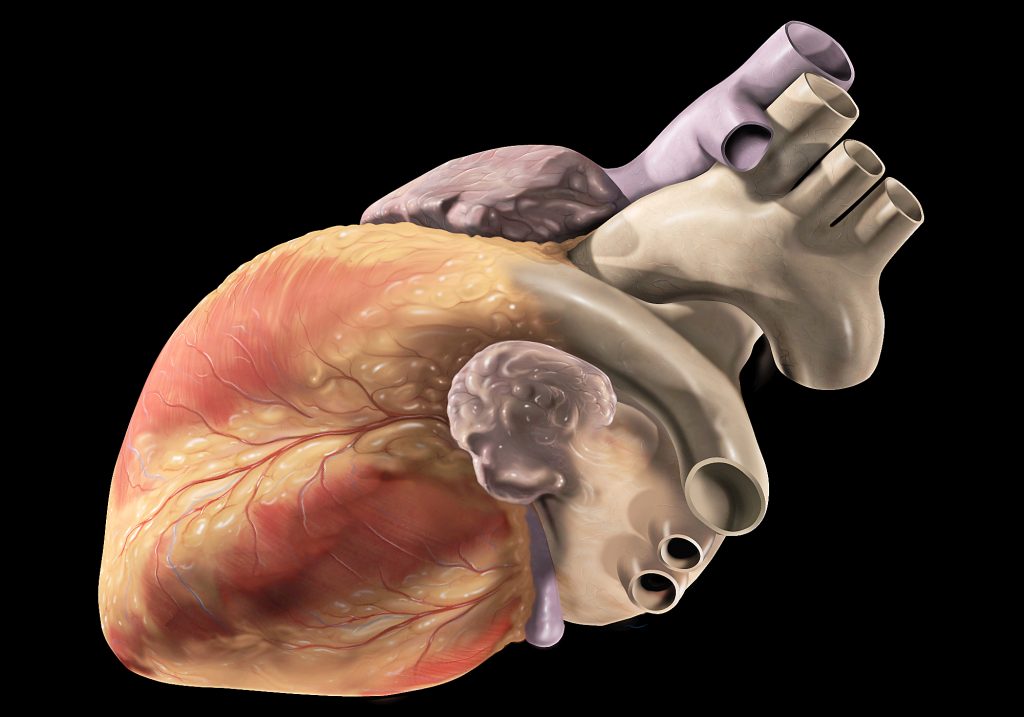Heart disease is one of the leading causes of death in the United States year after year, but many times the problems that actually lead to death could have been treated if the patient had only paid attention to the warning signs. Your body will let you know when something is wrong with it, and if you are watching for those signs that point to heart disease you can head off the situation before it gets out of control.
If you are someone who is at high risk for heart disease the warning signs become even more important to watch for, but no one can really afford to ignore the signals that their body is sending them.

There are three major symptoms that you need to watch carefully.
Tightness
The most immediate sign of heart problems is tightness in the chest, especially if the tightness comes when you have not overexerted yourself. The most serious chest tightness comes from the middle of the chest, almost exactly between the breasts. The discomfort can be caused for any number of reasons, but the one to be concerned about is that your heart could be struggling to push blood to the rest of your body, and each beat that it has to struggle does more and more damage to the walls of the heart, and that damage cannot be repaired easily.
If you are experiencing recurring chest pain on a regular basis, or you have a constant and persistent throbbing in your chest, you need to go see a doctor immediately. Waiting until you are in the middle of a heart attack not only increases the severity of the event, but it can cause serious long-term issues even if you survive.
Numbness
Sometimes you may notice that your arms or legs are falling asleep more often than usual and you do not know why. This is usually your body telling you that plague build up in your arms and legs is causing reduced blood flow to your extremities. When these areas go too long without blood they begin to die from a lack of oxygen, in addition to the extra strain that is put on your heart from trying so hard to push the blood through the blockage.
Fortunately these issues can be solved with an out-patient procedure known as angioplasty, provided the blockage is not overly large, but the condition is still serious enough that you should go see a doctor right away. The failure to do so will require more extreme measures to be taken, up to and including amputation of the limb.
Lightheadedness
An unexpected feeling of lightheadedness is never a good sign, and if it is something that happens to you consistently your body may be warning you of an impending stroke. A stroke is caused when the blood flow to your brain is interrupted, and even if you are able to get to a hospital as soon as the stoke begins you may suffer permanent and irreparable loss of function in your face and limbs.
Getting to a doctor before you show the signs of a full blown stroke will let the doctor address the underlying problems and keep the blood flowing to the most important organ in your body. Like with numbness in the limbs, angioplasty and other minimally invasive procedures may be able to solve the problem, but only your doctor will be able to lay out what you full range of options are.
Heart disease is a serious matter and it is something that all Americans need to pay special attention to. There will always be the unexpected heart attack, but most of the time your body will give you plenty of warning that something is not quite right before it goes in to a full blown attack. An open and frank discussion with your doctor is the best way to handle the problem, and if you do not have a cardiologist those at specialty clinics like the California Heart Clinic can help to get you started.
Featured images:
License: Royalty Free or iStock
source: http://upload.wikimedia.org/wikipedia/commons/8/85/Heart_oblique_external.jpg
I am Kara Daniels and two years ago I almost lost my husband to a heart attack. He had been complaining about pain in his chest for several weeks before he collapsed in our dining room one night. I wrote this article so that others could see the warning signs and learn to take care of them before they suffer a heart attack.
